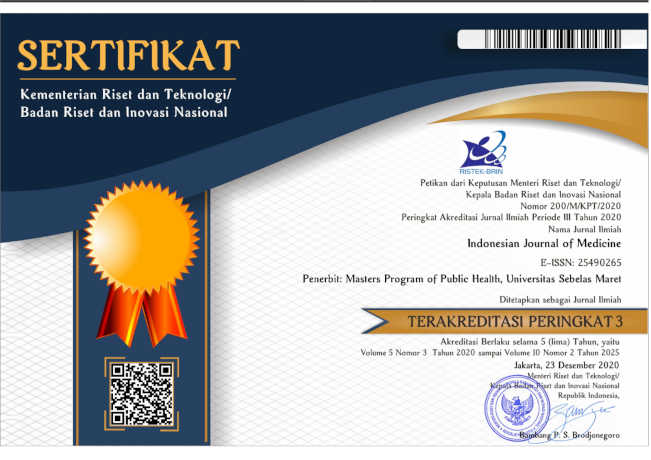Circadian Rhythm Sleep Disorder among Nurses in Emergency Department: A Systematic Review
DOI:
https://doi.org/10.26911/theijmed.2018.3.1.107Abstract
Background: Circadian Rhythm Sleep Disorders (CRSD) is a sleep pattern disorder that can be caused by a shift work system, especially the night shift. This disorder can cause various cardiovascular diseases, psychological, decreased concentration, even Alzheimer's. Some professions that demand high precision such as nurses who work with night shifts in the Emergency Room are very vulnerable to CRSD and if not handled, it can lead to work negligence. The purpose of this review is to review CRSD due to work shifts, possible risks to the ED nurse and how to overcome them.
Subjects and Method: This article uses CRSD-related reviews published from 2000-2018 from various databases: PubMed, PMC Central and Elsevier open-access. The search was conducted on 1-14 July 2018 with keywords: "Circadian Rhythm Sleep Disorders", "treatment AND CRSD", "the effect of CRSD", "CRSD AND nursing, and" CRSD in night workers ".
Results: Based on the 20 articles reviewed, CRSD is a sleep pattern disorder that can be caused by endogenous factors and exogenous factors. One exogenous factor is a disturbance due to working time with the shift work disorders (SWD) system. There are several ways to overcome CRSD due to working hours, including: taking a nap before work, modifying the environment by avoiding light if going to sleep, but approaching light if you have to wake up, resetting your sleep schedule, and giving melatonin.
Conclusions: CRSD due to work disorders is called SWD which can be overcome by rearranging sleep, modifying the environment to fit the circadian rhythm, and consuming melatonin if needed.
Keywords: Circadian rhythm sleep disorders, shift work disorders, nurses
Correspondence: Arief Wahyudi Jadmiko. Study Program of Nursing, Faculty of Health Sciences, Universitas Pembangunan Nasional Jakarta. Email: awjadmiko@upnvj.ac.id.
Indonesian Journal of Medicine (2018), 3(1): 27-32
https://doi.org/10.26911/theijmed.2018.03.01.04











